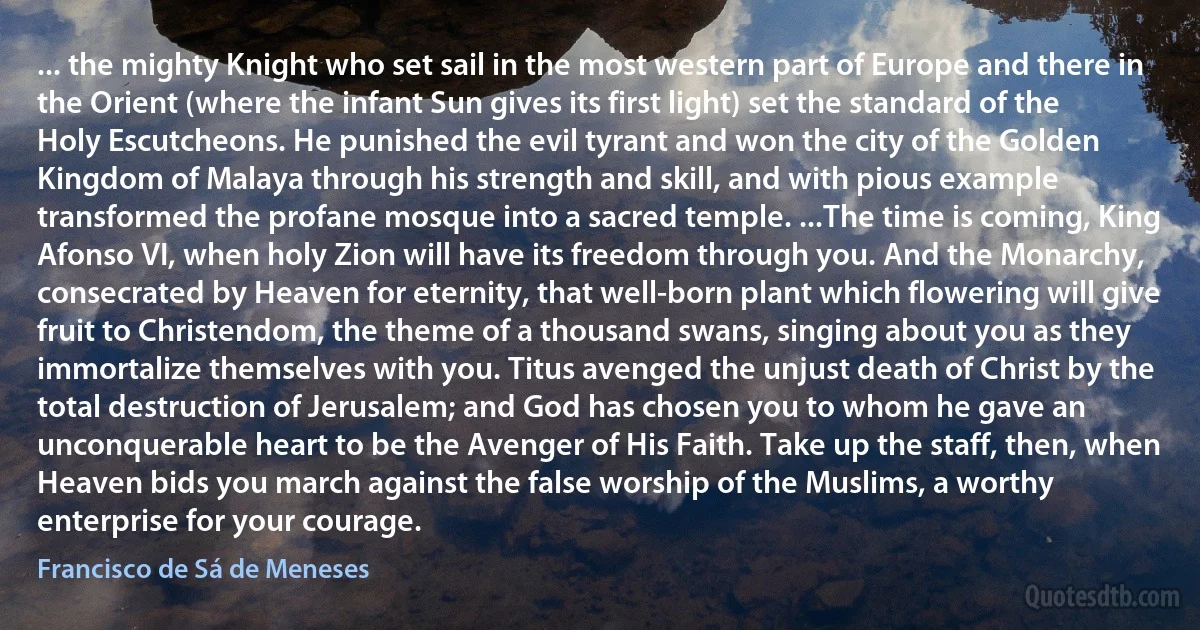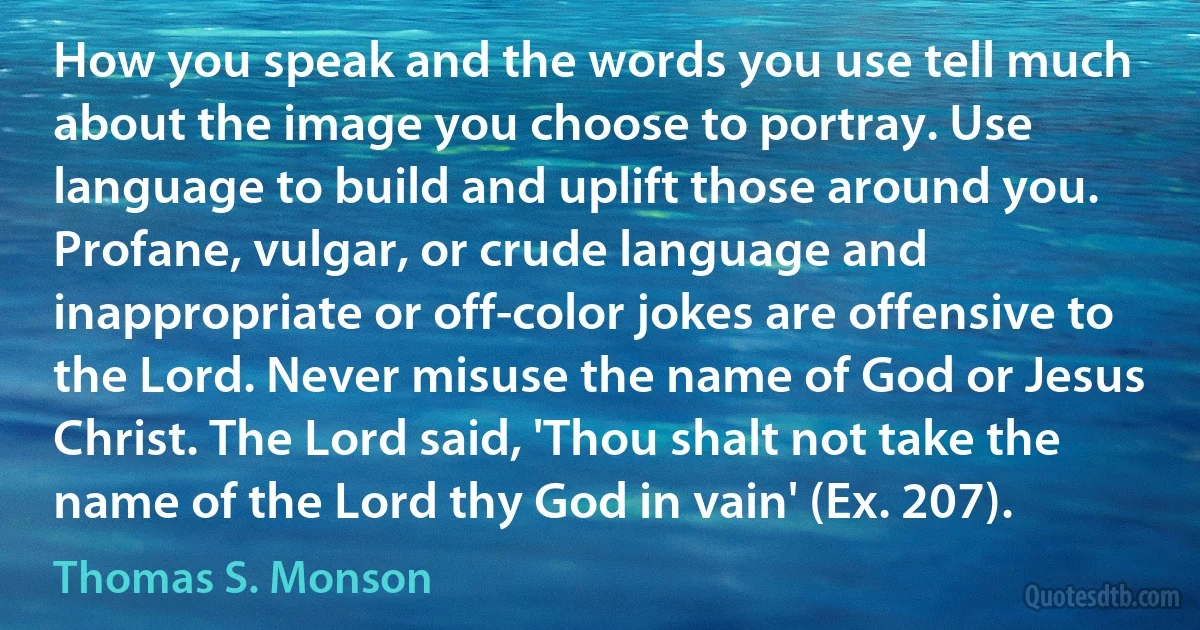Profane Quotes - page 3
Faith as well as science endowed the visible world with properties that eliminated blind, incalculable chance as the author of all events. The war of good and evil present in all religions does not always end, in every faith, with the victory of good, but in every one it establishes a clear order of existence. The sacred as well as the profane rests on that universal order...

Stanisław Lem
Between things sacred and profane there is this difference among others. In profane matters the instrument derives its worth from the end, and is valued for the most part only in so far as it is a means to that end; and consequently we change the instruments as the end demands, and finally, when the end is no longer pursued, the instruments automatically fall into disuse. But in sacred matters the end invests the instrument with a sanctity of its own. Consequently, there is no changing or varying of the instrument; and when the end has ceased to be pursued, the instrument does not fall out of use, but is directed towards another end. In other words: in the one case we preserve the shell for the sake of the kernel, and discard the shell when we have eaten the kernel; in the other case we raise the shell to the dignity of the kernel, and do not rob it of that dignity even if the kernel withers, but make a new kernel for it.

Ahad Ha'am
The prevailing attitude (which is gradually losing its grip) may be described as the tacit assumption that ancient Israel and Greece are two water-tight compartments... One is said to be sacred; the other, profane; one, Semitic; the other, Indo-European. One, Asiatic and Oriental; the other, European and Occidental. But the fact is that both flourished during the same centuries, in the same East Mediterranean corner of the globe, with both ethnic groups in contact with each other from the start.

Cyrus H. Gordon
According to some of the pious writers of antiquity, they made large fires, which might be seen at a great distance, upon the vigil of this saint [John], in token that he was said in holy writ to be "a shining light." Others, agreeing with this, add also, these fires were made to drive away the dragons and evil spirits hovering in the air; and one of them gravely says, in some countries they burned bones, which was called a bone-fire; for "the dragons hattyd nothyng mor than the styncke of brenyng bonys." This, says another, habent ex gentilibus, they have from the heathens. The author last cited laments the abuses committed upon thes occasions. "this vigil," says he, "ought to be held with cheerfulness and piety, but not with such merriment as is shewn by the profane lovers of this world, who make great fires in the streets, and indulge themselves with filthy and unlawful games, to which they add glotony and drunkenness, and the commission of many other shameful indecencies."

Joseph Strutt
A society whose members are united by the fact that they think in the same way in regard to the sacred world and its relations with the profane world, and by the fact that they translate these common ideas into common practices, is what is called a Church. In all history, we do not find a single religion without a Church.

Émile Durkheim
When it was reported to General Washington that the army was frequently indulging in swearing, he immediately sent out the following order The general is sorry to be informed that the foolish and wicked practice of profane cursing and swearing a vice little known heretofore in the American army is growing into fashion. Let the men and officers reflect 'that we can not hope for the blessing of heaven on our army if we insult it by our impiety and folly.'

George Washington
Although the loose will be more loose (yet) possibly being at more liberty they may be put upon consideration and choice of ways of life and peace, yet, however, it is infinitely better that the profane and loose be unmasked than to be muffled up under the veil and hood of traditional hypocrisy, which turns and dulls the very edge of all conscience either toward God or man.

Roger Williams (theologian)
The joy of life discovered by the Greeks is not a profane type of enjoyment: it reveals the bliss of existing, of sharing - even fugitively - in the spontaneity of life and the majesty of the world. Like so many others before and after them, the Greeks learned that the surest way to escape from time is to exploit the wealth, at first sight impossible to suspect, of the lived instant.

Mircea Eliade



